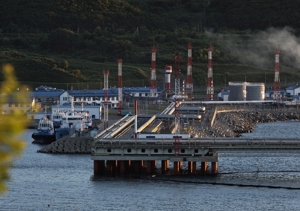Most Russian fuel exports now pricing above G7-imposed price cap
(Reuters) - Most Russian fuel exports from the Baltic and Black Sea regions are now pricing above a price cap set in February by a G7-led coalition designed to limit Moscow's revenues in the aftermath of its invasion of Ukraine, data from price reporting agency Argus Media showed.
The rise in Russian fuel prices comes as global prices for fuels from other origins soar amid strong demand and low inventory levels.
The Group of Seven countries, the European Union and Australia set price caps for Russian diesel and other fuels to keep markets supplied while limiting Moscow's revenues after an EU ban on importing those fuels came into effect on February 5.
The EU ban bars EU vessels from carrying Russian-origin fuel unless the products are purchased at or below the price cap agreed by the coalition.
The coalition set a $100 per barrel price cap on products that trade at a premium to crude, mainly diesel, and $45 per barrel cap for products that trade at a discount, such as fuel oil and naphtha.
The Argus data showed that prices for Russian origin diesel, gasoil, naphtha and fuel oil loading in the Black Sea and Baltic regions have exceeded those caps in recent weeks.
Russian origin gasoline continues to be priced below the $100 a barrel cap, the data showed.
At a press briefing last week, a senior U.S. Treasury official said Washington is confident that the price cap is working to squeeze Moscow's revenues and stabilize energy markets despite a recent upturn in prices.
Acting Assistant Secretary for Economic Policy Eric Van Nostrand said the cap was continuing to limit Russian revenues, while giving "non-coalition buyers additional leverage to negotiate prices down."
Russia's Urals crude has also been trading above the coalition's imposed price cap of $60 a barrel.
The Biden administration is poised to increase outreach to western trading houses, insurers and tanker owners to remind them to abide by the price cap, sources and exporters told Reuters.
The administration is expected to use "soft" tactics, instead of widespread threats of harsh enforcement on potential violators as that could upend energy markets, they said.
The EU ban on Russian oil imports forced Moscow to reroute its oil product exports to new buyers in West Africa, Latin America and the Mideast Gulf, increasing journey times for fuels like diesel and fuel that would have been destined for European buyers.







Comments